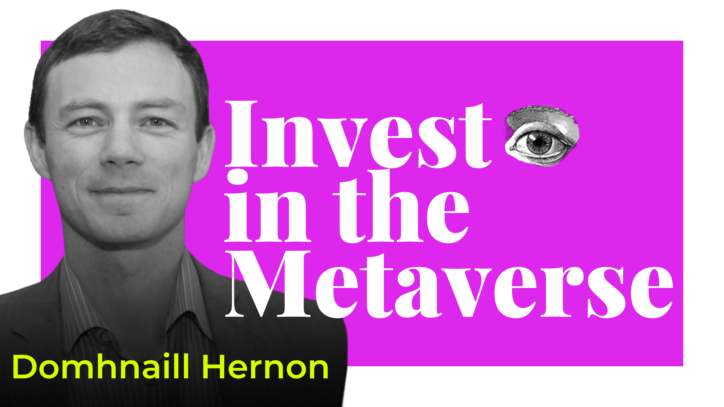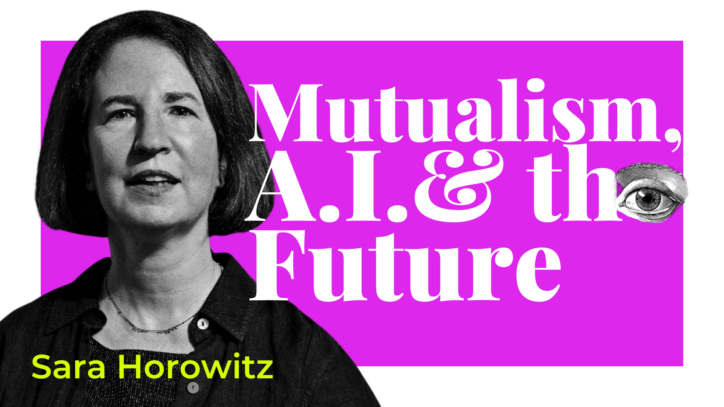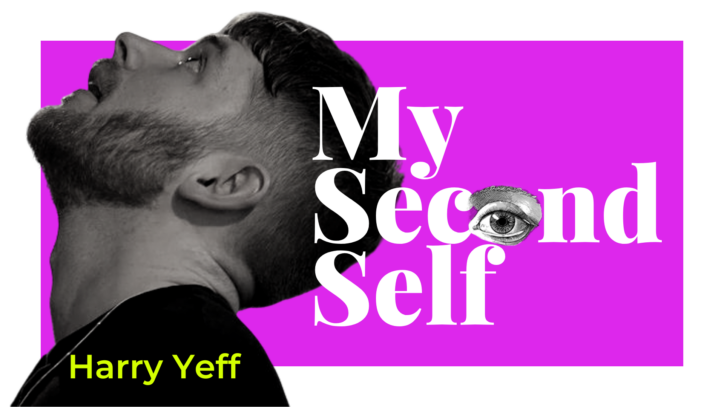

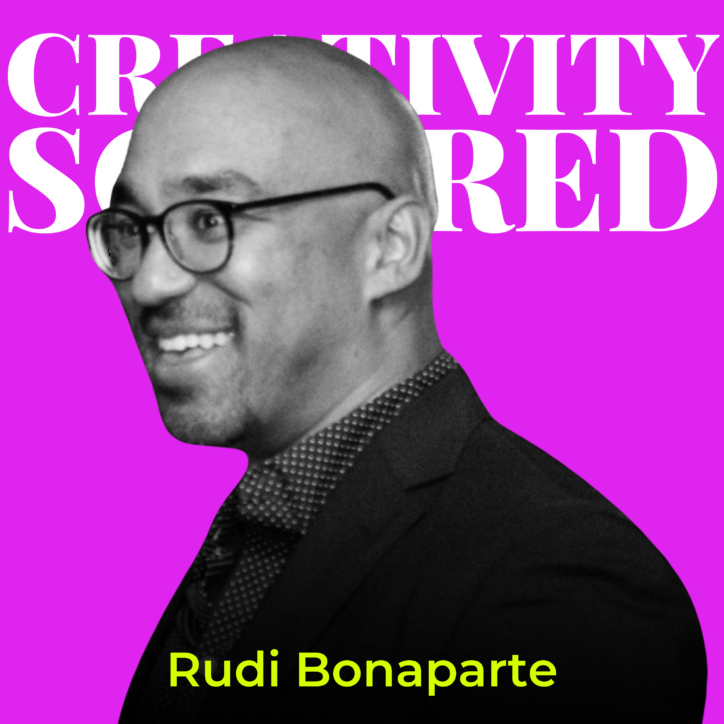
Ep46. A.I. & the Future of Gaming: Riot Games’ Rudi Bonaparte on A.I.’s Impact on the Gaming Industry and Simulating Real-world Future Society Scenarios
Are we in a gaming simulation and don’t know it?
That’s the question Creativity Squared host Helen Todd almost instantly poses to Rudi Bonaparte, Director of Corporate Operations and Strategy at gaming giant Riot Games, kicking off their conversation during a recent episode with a bang…and the discussion only gets more interesting from there!
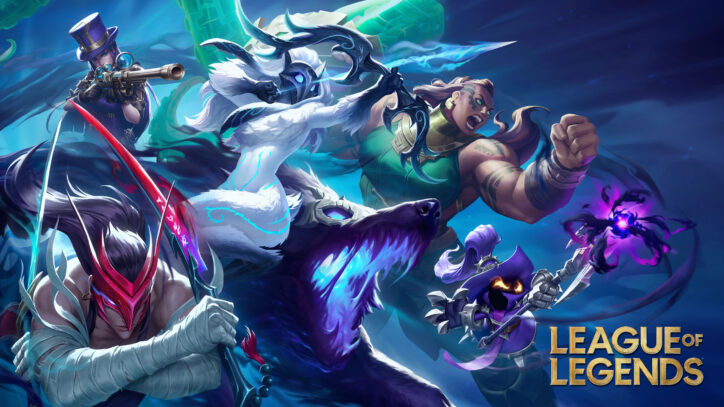
As a strategic leader driving innovation at the gaming studio responsible for the iconic ‘League of Legends,’ the most-played PC game in the world, Rudi brings a wealth of experience and insights to exploring the intersection of artificial intelligence, creativity, and the future of the gaming industry.
As a gaming executive with a professional focus on creating systems and spaces that empower creators to do their best work, Rudi helps senior executives and game development teams set clear goals, build exciting new capabilities, and thoughtfully allocate resources by combining strategic thinking and tactical implementation.
Charged with a new task in his role, Rudi ensures that Riot Games not only designs the most player-focused gaming experiences in the world but is also the best and most creative place to develop these games.
Before joining Riot Games, Rudi led strategy and analytics teams at Teach for America and consulted with clients in the tech, telecom, and media industries. He holds a bachelor’s degree from Harvard and an MBA from the Kellogg School of Management at Northwestern.

In this episode, Rudi discusses the state of the gaming industry, from the economic realities to the exciting possibilities of innovation emerging from recent disruption, and shares his perspective on A.I. gaming, and IP along with how Hollywood and gaming are converging.
Rudi and Helen also explore gaming as a testbed for ideas that could shape society, what Rudi would build into a virtual environment to nurture the best of humanity, and the lessons that in-game currency and incentive structures hold for the real world.
They further touch on some of Rudi’s favorite works of speculative fiction and why he believes the future will be brighter than many imagine.
To discover more about Rudi and Helen’s conversation, continue reading below!
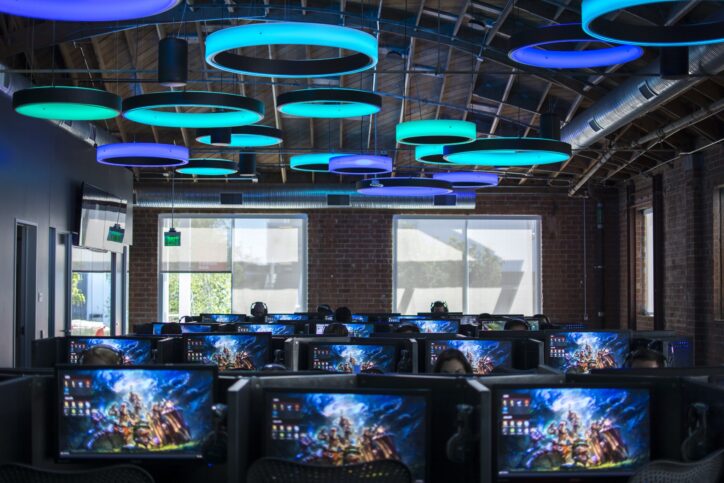
The State of the Gaming Industry and the Power of A.I.
From the seat where Rudi sits, A.I. has no shortage of implications for gaming.
Despite the tremendous growth experienced across the gaming landscape during the pandemic, as people turned to games for entertainment and connection, Rudi acknowledges the challenges that have come with the return to normalcy.
“The industry right now is in a really interesting place,” Rudi shares. “There are two conversations going on right now at the same time.” The first, he explains, is unavoidable. “We have to deal with the fact that there’s been a whole bunch of layoffs across the industry.” Despite these challenges, Rudy sees hope in the form of new market entrants — experienced developers who, having been laid off from big studios, are now starting their own ventures.
These individuals bring fresh perspectives and innovative ideas to the table, reimagining what the future of gaming might look like.
When it comes to the use of A.I. in game development, Rudi admits that Riot Games hasn’t yet fully embraced the technology. Nevertheless, he sees immense potential for A.I. to revolutionize game development processes.
“A.I. can be really helpful in terms of…helping folks get to prototypes fast. You can…write out…your basic idea for a game, for a concept for a level, for a piece of art, for a character design. And…these various tools can basically generate that for you.”
Rudi Bonaparte
By leveraging A.I. to quickly generate assets and iterate on ideas, developers can streamline the creative process and bring their visions to life more efficiently.
However, Rudi also emphasizes the importance of considering the ethical implications of A.I.-generated content, particularly when it comes to ownership and rights assignment.
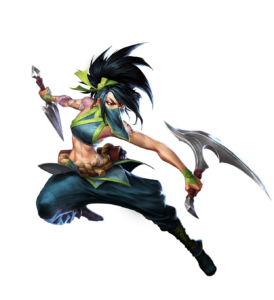
There is not, Rudi explains, “carte blanche to, like, run off with other people’s effort.” Developers, he insists, “will need to be really, really careful” about what data is used to train their models.
Rudi also stresses that, as the gaming audience continues to diversify, representation both in the games themselves and among the creators behind them remains critical. With the barrier to entry lowering thanks to A.I. and other technologies, he sees an opportunity for new voices and perspectives to emerge.
“Particularly mobile games…you’ll see some difference among gaming platforms, consoles versus PC versus mobile. But…there’s an increasingly broad audience that interacts with games that may not call themselves gamers.”
Rudi Bonaparte
In embracing this diversity and creating content that resonates with a wide range of players, Rudi says, the gaming industry can foster a more inclusive and dynamic ecosystem.
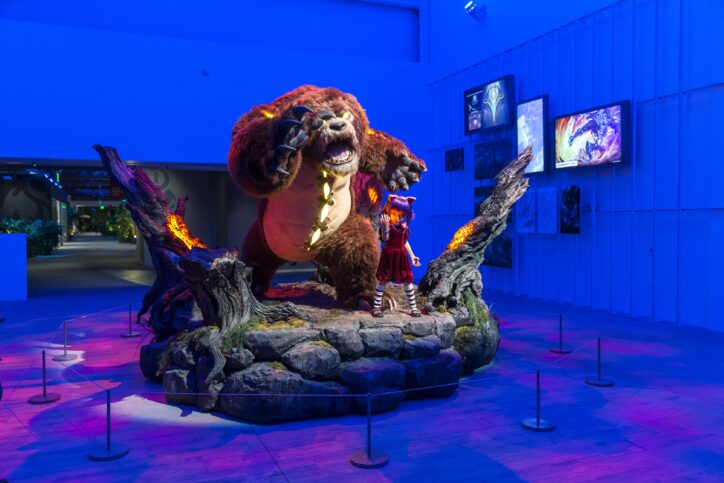
Immersive Experiences and Creating a Great Place to Make Games
Helen and Rudi’s conversation next turns to the increasing convergence of gaming and other forms of entertainment, such as film and television. Rudi highlights the incredible level of detail and immersion now possible in games, blurring the lines between interactive and passive media.
“The level of detail that we’re able to achieve sometimes is absolutely mind-blowing,” Rudi enthuses. “I remember the first time I saw the trailer for Cyberpunk 2077 by CD Projekt RED,” he goes on, describing how a scene in the game finds the player interacting with a character played by Keanu Reeves. “They digitized Keanu Reeves and put him in this game and he voiced it over!”
As games become more cinematic and movies embrace interactive elements, the possibilities for immersive storytelling expand, captivating audiences in entirely new ways.
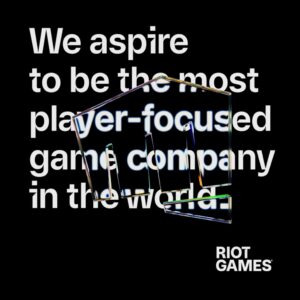
With a new charge in his role, Rudi is tasked with ensuring Riot Games not only designs the most player-focused gaming experiences in the world but is also the best and most creative place to develop these games.
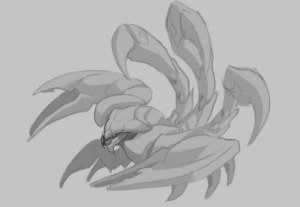
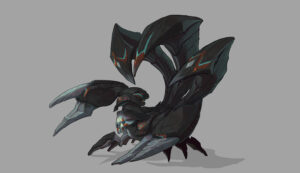
Rudi explains that gaming sits at the intersection of technology, art, and entertainment.
By investing in around-the-game experiences, such as esports and animated series, Riot Games aims to build a robust ecosystem that engages players on multiple levels and creates a sense of community and shared passion.
“The idea is that…even if you know nothing about ‘League of Legends’…you can watch this animated series and say, ‘Oh, that’s a cool world, tell me more,’ and maybe be attracted to other areas that interact with Riot. So that would be a huge chunk of Riot’s overall thesis—we’ve got games at the center, and then these other experiences that enhance that.”
Rudi Bonaparte
Throughout his conversation with Helen, Rudi emphasizes the vital role creativity plays in game development.
From crafting unique gameplay experiences to developing compelling IP, he explains, developers must constantly push the boundaries and find innovative solutions to meet evolving player needs.
Riot is also extending some of its game universes to include animated streaming series, like Arcane: League of Legends, which is available on Netflix.
Whether iterating on established formulas or venturing into uncharted territory, creativity remains the driving force behind the gaming industry’s continued growth and success.
“Creativity is a core part of making a great game…Why is this game different? And how is this going to meet players’ needs in a different way?”
Rudi Bonaparte
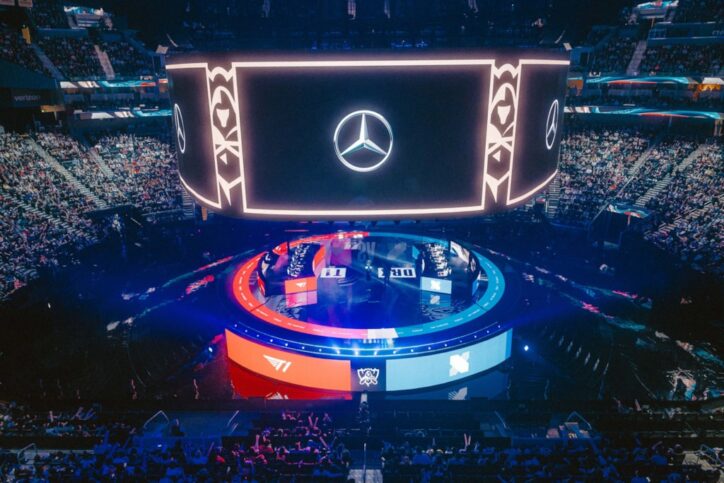
The Rise of Esports
The conversation also touches on the state of esports in the US, and the challenges faced by the industry.
While esports has gained significant traction in other parts of the world, Rudi acknowledges that monetization and creating a sense of community remain hurdles in the American market.
However, he also highlights the accessibility and immediacy of esports as potential growth factors. Unlike traditional sports, where fans may watch a game but not necessarily participate themselves, esports allows viewers to immediately jump into the same game they just watched professionals play.
“After you watch, like, the league championships, or the Overwatch championships or watch the fighting game tournaments at Evo,” he explains, “you can literally boot up your PlayStation and do that.”
This unique aspect of esports creates a powerful connection between fans and the games they love, fostering a sense of engagement and community that could fuel future growth.
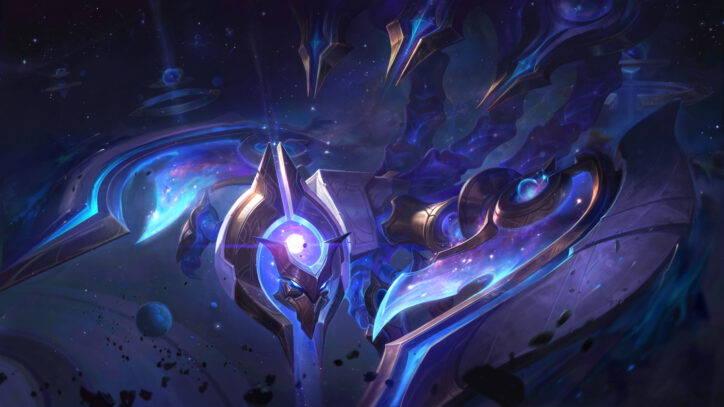
Gaming as a Testbed for Future Societies
One of the most intriguing parts of the discussion centers on the idea of using gaming as a testbed for ideas that could shape future societies.
Rudi explains how the escapism inherent in games allows developers to create virtual worlds with different rules and structures, providing valuable insights into human behavior and social dynamics.
“…the rules of physics are different, the rule of law is different, there’s rules of magic, sometimes…So there’s lots of different ways that you can interact. And when you give people certain tools and take away other tools, watching how they interact, and can give you some really interesting insights into how people think.”
Rudi Bonaparte
He cites the example of EVE Online, a massively multiplayer online role-playing game (MMORPG) where players organize into complex political structures, forming corporations and alliances with player-driven narratives emerging organically. By observing how these virtual societies function and evolve, developers can gain valuable insights that could inform real-world decision-making and policy.
The conversation also explores the role of incentives in shaping player behavior and the potential impact of tokenization on gaming economies. Rudi explains how in-game currencies and reward systems can encourage certain actions and discourage others, providing a fascinating glimpse into the power of gamification.
“In-game incentives shape player behavior, providing insights into human nature.”
Rudi Bonaparte
He also discusses the challenges and opportunities associated with tokenization, the process of converting in-game assets and currencies into tradable digital tokens.
While the idea of a unified digital wallet for various gaming ecosystems is appealing, Rudi highlights the complexity of ensuring fairness and equity when moving assets between different games with unique economic structures.
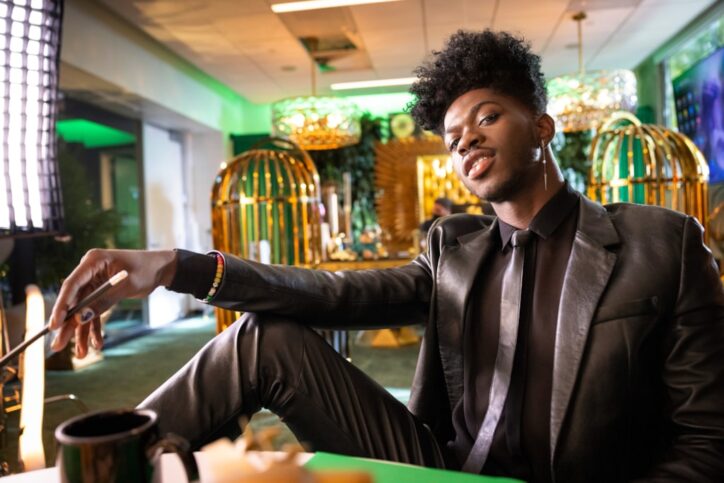
Designing a Utopian Digital Society
When asked about what elements he would include in a virtual environment designed to nurture the best of humanity, Rudi emphasizes the importance of purpose, direction, and hope. He argues that a successful digital society must provide individuals with a sense of meaning and the support they need to achieve their goals.
“If you were designing a game space that was going to model what a better reality might look like, helping everyone find their purpose, I think, would be a huge component of providing them support.”
Rudi Bonaparte
By creating structures that facilitate connection and collaboration, and by offering a clear path to progress and achievement, developers can craft virtual worlds that bring out the best in their inhabitants.
Throughout the conversation, Rudi references various works of speculative fiction that have influenced his thinking on gaming and society. From William Gibson’s Neuromancer to Robert Heinlein’s Starship Troopers, these books provide a rich tapestry of ideas and possibilities that can inform game design and spark the imagination.
“The main thing is just to read a bunch of different stuff,” he shares. “I think I’ve benefited the most from being able to be fortunate to have access to lots of different types of materials, fiction, nonfiction, science fiction, fantasy, technical manuals, like economic books,” Rudi elaborates. “All of those kind of just add up to an understanding of what might be or what’s possible as a way to associate these different ideas together.”
By drawing inspiration from a wide range of sources and disciplines, game developers can create richer, more immersive experiences that resonate with players on a deeper level.
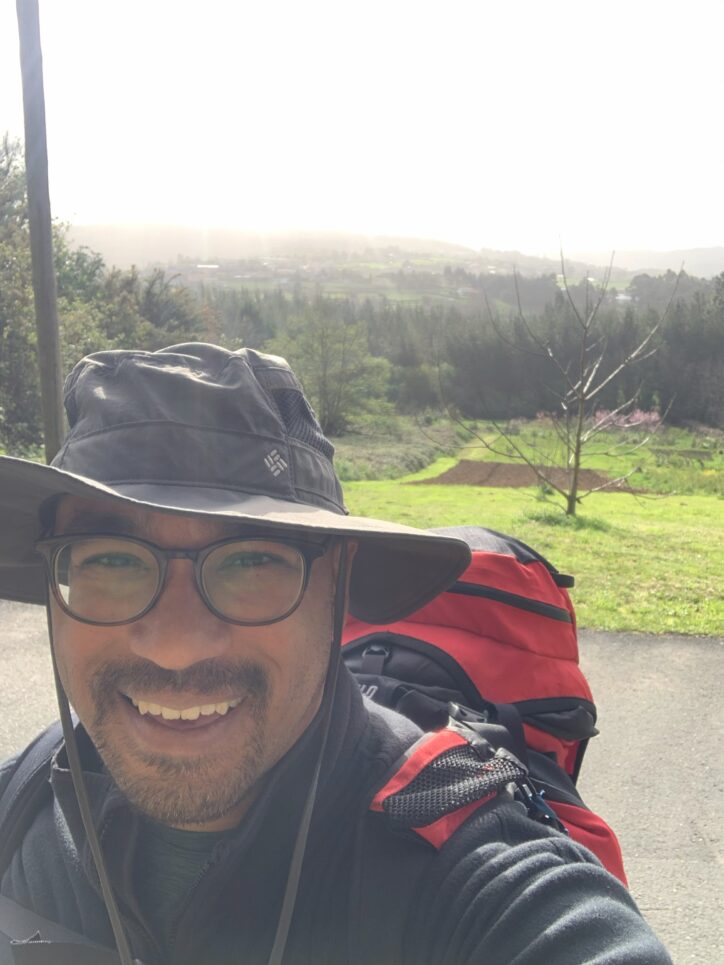
A Brighter Future
As the conversation draws to a close, Rudi leaves listeners with a message of hope and optimism: Despite the challenges facing the gaming industry and the world at large and the concerns around A.I., he believes that the future will be brighter than many imagine.
“It’s worth leaving some room for hope. Because there’s a lot of really cool stuff that’s coming out. There’s a lot of really cool opportunities for people that do and be more. So just, like, leaving some space in your head and some space in your heart for that.”
Rudi Bonaparte
By embracing creativity, diversity, and the transformative potential of technology, the gaming industry can play a pivotal role in shaping a better tomorrow. As developers continue to push the boundaries of what’s possible, they invite players to dream bigger, imagine new worlds, and become active participants in the ongoing story of human progress.
But what about the question that opened the episode: Are we in a simulation?
Rudi’s answer may or may not be much comfort to readers and listeners, but like all of his insights, it is interesting: “I think the only reasonable answer’s: yeah, almost certainly.”
Links Mentioned in this Podcast
- Riot Games
- Cyberpunk 2077
- CD Projekt RED
- Esports
- Overwatch
- The fighting game tournaments at Evo
- EVE Online
- William Gibson’s Neuromancer
- Robert Heinlein’s Starship Troopers
Continue the Conversation

Thank you, Rudi, for being our guests on Creativity Squared.
This show is produced and made possible by the team at PLAY Audio Agency: https://playaudioagency.com.
Creativity Squared is brought to you by Sociality Squared, a social media agency who understands the magic of bringing people together around what they value and love: https://socialitysquared.com.
Because it’s important to support artists, 10% of all revenue Creativity Squared generates will go to ArtsWave, a nationally recognized non-profit that supports over 150 arts organizations, projects, and independent artists.
Join Creativity Squared’s free weekly newsletter and become a premium supporter here.
TRANSCRIPT
Rudi: If you were designing a game space that was going to model what a better reality might look like, helping everyone find their purpose, I think, would be a huge component of that. Providing them support in order to achieve that purpose, I think, would be a huge part of that. Establishing structures, guilds, or townships, or however you want to do it, that’s where the creativity comes in.
Helen: Meet Rudi Bonaparte, who’s driving innovation at Riot Games, the gaming studio who created the iconic League of Legends, which is the most played PC game in the world. Rudi is a gaming executive with a professional focus on creating systems and spaces that empower creators to do their best work.
Helen: As Riot Games Director of Corporate Operations and Strategy, he helps senior executives and game development teams set clear goals, build exciting new capabilities, and thoughtfully allocate resources through a combination of strategic thinking and tactical implementation. With a new charge in his role, Rudi is tasked with ensuring Riot Games not only designs the most player focused gaming experiences in the world, but is also the best and most creative place to develop these games.
Helen: Prior to joining Riot Games, Rudi led strategy and analytics teams at Teach for America and consulted with clients in the tech, telecom, and media industries. He holds a bachelor’s degree from Harvard and an MBA from the Kellogg School of Management at Northwestern. AI has many implications for gaming.
Helen: Which sits at the intersection of technology, art and entertainment. In today’s conversation, Rudi discusses the state of the gaming industry, from the economic realities to the exciting possibilities of innovation emerging from recent disruption. Rudi shares his perspective on AI, gaming, and IP, along with how Hollywood and gaming are converging.
Helen: We also explore gaming as a testbed for ideas that could shape society. What Rudi would build into a virtual environment to nurture the best of humanity and the lessons that in-game currency and incentive structures hold for the real world. We also touch on some of Rudi’s favorite works of speculative fiction and why he believes the future will be brighter than many imagine.
Helen: Are we in a gaming simulation and don’t know it? Listen in to find out. Enjoy.
Helen: Welcome to Creativity Squared. Discover how creatives are collaborating with artificial intelligence in your inbox, on YouTube, and on your preferred podcast platform. Hi, I’m Helen Todd, your host, and I’m so excited to have you join the weekly conversations I’m having with amazing pioneers in the space.
Helen: The intention of these conversations is to ignite our collective imagination at the intersection of AI and creativity to envision a world where artists thrive.
Helen: Rudi, welcome to Creativity Squared.
Rudi: Thank you.
Helen: It’s so good to have you on the show. Rudi and I have known each other, goodness, I don’t even know how many years since 2016 or 2017?
Rudi: Many, many.
Helen: I always, always enjoy conversations with Rudi, so it’s wonderful to get to share those more widely on the podcast today. But one of the conversations we recently had when we last got together in person. Was Rudi, are we in a simulation?
Rudi: Yeah, I remember that conversation. And I think the only reasonable answer is yeah almost certainly.
Rudi: Right. There’s a scale of compute that we’re playing with now where we can create simulations, like in the game, the Sims, where you’re kind of like managing people through their day, through their week, through their life cycle. And do they know that they’re in a simulation? What level of cognitive thought are they going through?
Rudi: Who knows? Probably not. But like, if there’s a possibility that some version of ourselves at some point in the future comes up with a computational technology to make a really super vivid simulation, we would also be super clear to like, not let ourselves know that because we wouldn’t want to mess with the results.
Rudi: So for all the simulations that we currently have, there’s probably one in the future that looks just like this. So it’s probably a thing.
Helen: Well, the more that I learn about AI and see all these futurists talking about the technology that currently exists and that’s on the horizon, I’m with you that I am more and more convinced that we’re in a simulation as well.
Helen: And I know you just recently got back from GDC. I just recently got back from SXSW, and one of the AI developers who’s working on AGI using neural networks was sharing with me one of the experiments that he wants to do or simulations that he wants to run with his tool is not to train these AI machines on our human data scraped from the web or whatever.
Helen: He wants to start a simulation with just, with the computers only having like the laws of physics and see what happens. And I was like, isn’t that just the big bang? Can we already be in one of those and not know it?
Rudi: Yeah, that’s how that starts.
Rudi: Like if you started with like basic laws of physics and a couple core premises and just like, let that run. At some point you will run into the upper limits of compute based on the technology that we have now, but like, yeah, you throw in a little bit of quantum computing at some point in the very distant future and yeah, you’ll end up with a simulation of this.
Rudi: That’s just how that has to go. So yeah, no, he will get there. He will get there.
Helen: I know we jumped right into a fun question, but for those who are meeting you for the first time, can you introduce yourself, where you work and a bit of your origin story as well?
Rudi: Yeah, sure. So my name is Rudi Bonaparte.
Rudi: I’m a director at Riot Games working on corporate operations and strategy. I also help out with a couple of different game teams currently working on 2XKL, the 2D platform fighter, helping work through some of the the strategy and launch mechanics for that game, super fun. I’ve always wanted to work in games.
Rudi: I’ve been playing video games since like the Atari 2600 days. That’s dangerously dating myself. But yeah, I came up with the, like one joystick, one red button crew. And I have been playing video games ever since. Like one of the big topics at GDC this last year was Helldivers 2, a new game from Arrowhead studios.
Rudi: That’s kind of like taking the industry by storm. And I’ve been playing a bunch of that in the last week. So it’s been many decades of gaming. I got into gaming after business school, went to Northwestern Kellogg and was fortunate enough to make some connections there that was able to link me up with Riot.
Rudi: Before that, I was at Teach for America working on corporate strategy. I did some more consulting tech, telecom, digital media work before that. And yeah, I did my undergrad at Harvard and nothing related to any of this stuff. So it doesn’t really matter what you study. It’s just where you want to go.
Rudi: But yeah, I live in Los Angeles and have a great time working on games.
Helen: I mentioned before we started recording that gaming has come up in a couple of different interviews on the show specifically with Dunal Hernan that gaming, I didn’t know this makes more money than film TV and music combined as far as revenue in the industry.
Helen: And for just our audio listeners, Rudi is shaking his head in agreement. But also it’s so interesting as we get into more immersive gaming. So I’m curious, you know, could you give us kind of your lay of the land of where gaming is right now and some of your top takeaways from GDC, which is the Game Developers Conference that you just came back from.
Rudi: Yeah, for sure.
Helen: Just for anyone who’s kind of new to the world of gaming, bring us a nice introduction, I guess.
Rudi: Yeah, for sure. So yeah, so gaming is super big. We’re fortunate enough to be at the intersection of technology, art and entertainment. And that means that we have folks coming in from all sorts of different angles with visions for what, like a great experience would be. And that has resulted in a lot of audience spend, which gives us some opportunity.
Rudi: I think the industry right now is in a really interesting place. There’s two kind of conversations going on right now at the same time. The first is unavoidable. Like we have to deal with the fact that there’s been a whole bunch of layoffs across the industry. And that’s been like, really, really hard to stomach, but like necessary as we start to think through how we adjust our business models from what game companies look like before the pandemic to during the pandemic, when there was a lot of incentive for growth, like everybody stuck in their house, it’s a great time to play games.
Rudi: You saw tremendous growth in the game industry and then the basically scaling back of all of that as consumer spending patterns have normalized over time. Folks have gone back out into the world and done other stuff than work on games or play their games, spend on games, and I admit that, like, a lot of companies have had to lay people off.
Rudi: What that does, though, is create the second part of the conversation, which I think was also a big part of GDC, which was the kind of hope that comes out of that, because one of the things that we now have is a whole bunch of folks who are now new to the market lots of experience, lots of opportunity, have made some games during the pandemic, have worked on some big projects, and now like, what do I do now?
Rudi: And I know a couple of different companies just off the top of my head that are started by people who are laid off in big studios and are now starting their own major studios, fully funded, and are going to make some amazing things. And these individuals might have been spread across three, four, five, six different big title, big publisher studios previously, but now they’re able to kind of join forces since they’ve all been let go and reimagine what the future of this industry might look like.
Rudi: So there’s a lot of hope for what some of these new markets might be able to do.
Helen: Interesting. Well, and I remember, you know, getting to talk to you and it had been a while since we had seen each other in person. I was like, AI and gaming, you all have to be using AI a lot in your games. And your answer kind of surprised me, like, oh, not actually.
Helen: So can you tell me a little bit about how you’re thinking about AI now, and maybe even some of your conversations that GDC related to AI too.
Rudi: Yeah, I mean, I’m comfortable talking about AI in the gaming industry a little bit more generally. I think there’s some really good opportunities out there in terms of how you make games, what the core gameplay loop might look like, and then how you deliver games as a live kind of ongoing service over time.
Rudi: So in terms of making games, I think AI can be really helpful in terms of like lowering the barrier to entry. And helping folks get to prototypes fast. You can use some of these like text to image or like, even like text to video is some of the stuff that we’re starting to see where basically you write out what your basic idea for a game, for a concept, for a level, for a piece of art, for a character design.
Rudi: And these various tools can basically generate that for you that would originally be a ton of work, but you can very quickly see like, hey, this is a good idea. This is interesting. This is something I want to invest more time in or maybe I need to tweak my pitch, right? So that iteration loop to get you to that first great idea is made much, much simpler via AI.
Rudi: As you go through the production cycle, there’s lots of things that AI can help with, like just basic chatbot help with writing code. That’s one of the things that I think is going to be super, super disruptive coming up is that like, saying, “Hey, I need a passage in C sharp that does this C sharp for random reasons that does X,” and I can write that, right?
Rudi: There was like, there was a company recently that came out with like an AI developer. I can start with the blanking on the name of it at the moment, but this AI developer is something that’s totally worth watching. Because if we get to a point where you can say like, “Hey, I want to build a character in a game that is six foot two wields an ax and has a British accent,” I don’t know.
Rudi: Then you go, okay, we run that through like a couple of different AI programs and that will get to a point where we can rig it, code it and VO it. Generate the key art for it. Like all of that can be done pretty quickly and get you to a solid prototype. I think the thing you gotta be worried about, though, is that, like, the ownership of these assets is something that is still being very hotly discussed.
Rudi: And to the extent, though, especially, like, in the case of image generators, a lot of the assets that it was trained on are the proprietary materials of other artists. Like, those artists need to see benefit from their work. So I don’t think that there’s, like, this carte blanche, like, runoff with other people’s effort.
Rudi: Because you’re going to like run it through an AI and synthesize something else, I think that developers will need to be really careful in terms of like what their models are trained on and the rights assignment to that, because we don’t want to disenfranchise anybody that’s really contributing to the end product.
Rudi: But that being said, like, there’s a lot of opportunity there to kind of, like, tighten up those production loop. And then at the end, once you’re running a live service, there’s all sorts of things that AI can help with tremendously. From packet routing, like how you move little bits of data around the internet to make the game g to how you deal with customer support.
Rudi: That’s one of the things that AI can be super helpful with because AI has access to the entire library of knowledge of how to fix your problem. And AI can find you the answer pretty quickly since it’s faster than a human could. So I think folks that are running into trouble may have a better experience with an AI chatbot than with somebody from traditional customer service.
Helen: Yeah. Thank you for giving us the lay of the land. And yeah, it’s good to hear you mention about the artists compensation and attribution as well. I know some companies like, I mentioned all the time on the show, Adobe, any works that come out of Adobe’s gen AI product the artists have consented to having them train the models and there’s actually an algorithm that determines the compensation based on the output.
Helen: So there are examples out there. And as soon as we start talking about blockchain and smart contracts, it gets really interesting in having the revenue sharing done through the smart contracts. So it’s good to hear you say that, you know, that’s very new in the gaming industry as well.
Helen: And it also sounds like just the lower barrier of entry will open up so many new voices and ideas when it comes to gaming too, because one thing I didn’t know until a presentation last year, I think, what is it? You probably know the stat, like 50 – over 50 percent of gamers, especially mobile games are women?
Helen: Is that true? Do I have my stats right?
Rudi: Yeah, that’s about right. That’s about right. Yeah. Particularly in mobile games. Like, you’ll see some difference among gaming platforms, consoles versus PC versus mobile. But yeah, like there’s an increasingly broad audience that interacts with games.
Rudi: They may not call themselves gamers. Definitely was in a focus group with somebody who’s like, “I’m not a gamer.” And then we asked them like, “Okay, well, what do you play?” And this one was like, “Well, I probably spent six hours a day on Candy Crush.” I was like, “by most definitions, you would qualify as a gamer.”
Rudi: I mean, you might not self identify as a gamer, but I’m pretty sure King, the publisher, thinks you’re a gamer. And so, folks are really diversifying in terms of like, who we consider to be somebody that plays games as a gamer interacts with this sort of digital interactive medium, right? And so with that diversity of audience comes a diversity of demand, the types of things that will resonate with them, the stories they want to hear, the characters they want to interact with, the gameplay loops that they want to engage with.
Rudi: And so as you see the barrier to entry decreasing with the support of some of these technologies, you get different creator voices in the mix. I think that’s a super, super important bit that we can see more representation, more diverse representation, both in terms of the founders, in terms of the stories that they tell and in terms of the audiences that they can connect with.
Rudi: It’s all really good stuff.
Helen: And on the convergence of, because you mentioned you sit at the intersection of art, technology and gaming. It seems like some of these, and I’m not a gamer, unless you count Word Oil and Scrabble Online with my mom.
Helen: But I’ve seen some of the environments, it almost seems like some of the games are like you’re interacting within movie environments where the storylines and narratives and gaming, you know, Hollywood and the gaming environment seem to be converging.
Helen: Is that something – Is that accurate? And do you see that just even expanding more, especially when we talk about immersive and metaverse and all of these types of environments?
Rudi: Yeah. The level of detail that we’re able to achieve sometimes is absolutely mind blowing. I remember the first time I saw the trailer for Cyberpunk 2077 by CD Projekt Red, and your character, like, wakes up in this junkyard after having an unfortunate accident, and the person that kind of, like, tells you to wake up and is, like, lifting you up, it’s just Keanu Reeves.
Rudi: They digitized Keanu Reeves and put him in this game and he voiced it over, they texture map the character Johnny Silverhand. It’s just Keanu Reeves. He’s acting in this game and it’s a really cool experience because you’re like, “Hey, I’m going to go run around with John Wick and this is going to be amazing.”
Rudi: There’s another game that came out recently, actually it was an expansion to that, which featured Idris Elba, and he does a fantastic job there. We’re seeing an increasing amount of like, Hollywood talent in games, and the technology to support that. Epic’s done some really cool stuff with Unreal that is allowing us to play with like, light and sound in different ways, and getting us to a point where it’s really, really hard to tell if you’re watching a movie that was rendered in a like, multi, multi million dollar studio, or you’re just watching a video game.
Rudi: And I think that’s super cool. That’s one of the benefits of being at the intersection of tech and art, is that we can use the tech to raise the quality of the art.
Helen: That’s very cool. I feel like I could be a gamer in the future, as the movies and the games intersect more.
Rudi: Yeah. There was actually a really cool project that Netflix did, Bandersnatch, which was like an interactive movie.
Rudi: If you remember the choose your own adventure books that were super popular and like… again, dating myself, like the eighties and nineties. But like, yeah, as you’re going through the narrative of this guy who’s developing a game and it’s starting to interact with his real world in weird ways, like you can make choices and the user interface for all that exists.
Rudi: And so you’re watching a movie, but you have a material impact on how that plays out. And I thought it was a really cool experiment to see from them and I hope they do more of it in the future.
Helen: One of my early favorite movies kind of along this front was, I don’t know if you remember Clue. I think we have it at my parents house on VHS still, but it had like four different endings.
Helen: And I think when it was released in theaters you may or might have seen the right or the final ending but it gave all four or five different endings at the end of the VHS. And I was like, that would be such a cool immersive game to have Clue, like in a VR environment. So, if anyone from Hasbro is listening, that’s on my wishlist.
Rudi: Yeah. There’s a lot of cool VR related experiences with escape rooms and things like that. Because once you’re in that immersive space, choosing what to interact with to kind of move the puzzle forward is something that that medium kind of lends itself to pretty naturally.
Helen: And you told me that you actually have somewhat of a new role at Riot that you’re kind of charged with coming up with Riot’s version of the Disney Imagineering [00:21:39] formula to figure out the secret recipe to make Riot the best place to make games and develop our game experiences and develop games from the user and developer side.
Helen: So can you tell us I guess about this new department and where you’re at and how you’re thinking about it?
Rudi: Yeah, I can talk about that a little bit. Yeah, I hadn’t really thought about it in terms of like, it’s parallels to Imagineering, but it’s something interesting to pursue. I think, like, my, the remit that I’m working with is that as a company, we want to be particularly focused on making the best possible experiences for players.
Rudi: And that means not just having super compelling gameplay experiences, but also investing in the around the game experiences that make this more than just the game, it’s something that they want to integrate into their lives and share with other folks. And so in a, like, particularly tangible example, you have League of Legends, the core game that you play, and you might invest some time in that, play with it, play with your friends, but then you’ve got the LCS League Championship Series, which is like the Esports around that, and like, tens of millions of people watch watch the league championship finals.
Rudi: It’s competitively viewed against like the NBA finals, more people watching world’s finals than NBA finals. And like you’ve got that experience that you can use to further enhance your fandom, give you another outlet for interacting with this IP in this world that you enjoy. And then on top of that, we released the Netflix series Arcane, which is a fantastic animated series.
Rudi: The studio Fortiche did a bang up job putting that together. And we got some pretty nice recognition for it. And we’re super, super excited to bring Season 2 later this year. The idea is that, like, even if you know nothing about League of Legends, the game and don’t follow the eSport, you can watch this animated series and say, “Oh, that’s a cool world. Tell me more.”
Rudi: And maybe be attracted to other areas that interacts with, right? So with that being a huge chunk of Riot’s overall thesis, like we’ve got games at the center and then these other experiences that enhance that, we want to make sure that, like, we’re specifically investing and focusing on the things that we’re particularly good at.
Rudi: Anybody with a business school background is gonna be like, “Yeah, you’re just looking for your competitive advantage.” Yeah, we do a bunch of things right. We do some things really, really well. We do some things okay, and we can be better at it. Let’s start to get really clear on what those are and how we invest in them to make sure we continue to deliver that kind of superlative experience for players.
Rudi: On top of that, this should be a really good place to make games. People will make the best experiences for players if they have everything they need and they have all the support that they need in order to bring those creative juices forward and express themselves in a way that really resonates with players.
Rudi: And so the other side of the coin is making this a really great place to make games in terms of how we support the artists and engineers and sound designers and all the folks that go into it producing and making a game, making sure that they get what they need in order to produce the games that player.
Helen: Well, as you were describing, I was kind of, I guess my reference point was like, Oh, this sounds like an Imagineering formula. So when, from the concept to, I guess, shipping, how do you all, or how do you think about creativity as related to gaming right now? Is there a playbook or a formula that Riot uses, or is it specific to the different game teams?
Helen: I’m just a little curious since the show is at the intersection of creativity and AI, how do you all currently think about creativity?
Rudi: Yeah, I mean, creativity is a core part of making a great game. You can’t really get anywhere without, like, specifically leaning into, like, why is this game different, and how is this going to meet players needs in a different way?
Rudi: Because players will immediately know if something’s derivative of something else, because they’re genre aficionados. [Take] one racing game, and you make another one that’s basically just a re-skinned version of Need for Speed, like, they know that, and they’re not going to play it. That’s going to be bad business for it.
Rudi: And so even starting with core game design theses and what market you want to go into, what genre you want to approach, what kind of, like, player experience you want to go after, you have to be really creative in terms of how you’re thinking about the relationship between the current offering, because there’s a lot of people out there.
Rudi: The current offering, what you want to improve on and how that’s going to make things better for players and there’s a lot of theorizing and hypothesizing about what that right answer might be but when you land on that, you’ve got this game thesis that you can then start to develop around and test and continue from there and then all through the process of like iterating on the game loop and how you express the art and what IP you’re going to use. Because Valorant, for example, doesn’t use the League of Legends IP.
Rudi: Valorant is our tactical shooter game. It uses a completely different world than League of Legends, which uses a little bit more of like a high fantasy, steampunk mix world. The two separate IPs and the decision to put Valorant in its own IP instead of the League IP meant that we’re going to have to create the whole Valorant IP.
Rudi: So there’s a whole bunch of work to be done there as well. And I think this is pretty common across most of the game studios in terms of thinking about what can we do with our existing formula? Like if you were at Ubisoft and thinking about how to extend the next chapter of the Assassin’s Creed story, you get some really, really clever people thinking about how do we take the core gameplay formula that made the series so successful across the seven or eight games they have in that franchise and iterate on it in a way that makes it, interesting and new and fresh for the for an audience that may not have been originally attracted to it.
Rudi: But still relevant and familiar enough to the folks that love the franchise where they’re like, Oh, you abandoned everything that was good. So they’ve got a very thin line to run and that’s going to require some fairly creative thinking.
Helen: It sounds like a lot of iterations go into the process of the games.
Helen: Oh, and you mentioned. Before we started recording about one of the conversations you had at GDC of how to integrate AI, and you mentioned it really starts with the game experience first and foremost and the tech second. So, do you want to expand on that a little bit more?
Rudi: Yeah. Yeah. I can talk a little bit about that.
Rudi: The question that I had fielded at this panel I was on at GDC, that I was super grateful to be a part of, was in regards to the type of technologies investors might want to see in a game that they’re potentially going to fund. And the other panelists and I had kind of all agreed that it wasn’t really about integrating technology.
Rudi: So it’s about finding that product market fit, finding a really clean way of articulating what experience the player wants to have, what player need you’re trying to meet, and how your game is going to link up with that. And the technology, therefore, ends up being a means to an end, a way to either quickly prove or disprove your hypothesis, a way to improve the player experience, a way to differentiate it from other things that currently exist, but it all is going to start with, “Hey, this is the people that we’re targeting, this is what they want out of a gaming experience, and this is how we’re going to meet that need.” Well before you talk about any sort of the technologies that get in there.
Rudi: Yeah. It’s integrated into that. The technology has become a reason to believe you might achieve that, but establishing that is the first question.
Helen: Yeah, I find that very interesting, especially, or it makes sense. I feel like so many people immediately just tech or jump to tech forward solutions and are like, find the problem.
Rudi: Well, they have a solution in search of a problem.
Helen: If you have a hammer, everything looks like a nail. Yes.
Rudi: Right. Yeah. And I remember there was a surge in investment a couple of years back just after the pandemic, where like everybody was, you know, was trying to make like, “We’re going to make blockchain games. We’re going to make Web3 games.”
Rudi: And it was about what can we do with web three? I think the exploration might’ve been helpful. But it didn’t start with a game thesis. It started with a tech thesis. And so you ended up with a lot of products and pitches that were like, “We’re going to use this technology on a thing that nobody, we don’t know if anybody wants.”
Rudi: And so a lot of those startups went little to nowhere because they hadn’t established how they were going to meet a consumer need first and then technology second. They started with how we’re going to use this tech first and then try to search for a consumer need second. Sometimes they just find it.
Helen: Yeah, that doesn’t surprise me. You mentioned Esports and I watched the movie Artificial Gamer, which I very much recommend. I had never even heard of the game Dota, which apparently is a massive game. Where you know, stadiums are filled, winners walk away with millions of dollars. But why I watched it and why I recommend it is in the, I guess, canon of AI versus humans and gaming, first we had chess and then a deep mine for the Chinese game Go and then Open AI, AI versus Dota players.
Helen: So it’s a really interesting look into Open AI’s culture. And this was before Chat GPT blew up and they kind of went more into, you know, a PR lockdown. So it’s an interesting look at how they think.
Helen: But one of the interesting things is that the players who played against the AI, the Open AI gaming agents, however you call them. They actually, when they came back to play against other human players, their personal games had improved so much playing against AI, that was almost like a human self, what is it, learning where their games improved playing against the AI.
Helen: So I thought that was a really interesting application of just AI and improving one’s own gaming. But that’s a very long way to get to my question, thoughts on that, but also what’s the state of Esports in the US, cause it seems like just from an outside view that it’s bigger in other countries where stadiums are filled, but I might just totally be missing the boat on what that landscape is here too.
Rudi: Yeah, I mean, I’ve been to some huge events at the Staples Center here in LA. But yeah, no. So the thing about like, AI agents in games and Starcraft is another example where like the Starcraft bot is particularly talented is that, unlike Chess and Go where [it] feels like infinite combinations, but like, there’s only a fixed number of first moves you can make in Chess.
Rudi: The degrees of freedom within some of these games that the AI is now engaging with, like Starcraft and Dota are significantly higher, and that means that, like, there’s a lot more room for creativity and unexpected things that the AI is not trained for, and that means that when you’re playing as a player, you’re kind of pushed to your next level because the AI will react to all the basic things because it’s been trained on all the basic things and so you really do have to like reach down into your humanity and pull out some creativity on how you’re going to beat this robot that will respond to all of like your 101, 201, 301 level actions.
Rudi: And so I’m not surprised at all that after playing against this machine [that’s] forcing you to play the highest level you possibly can as a person. When you come back and play against people who make mistakes against 101 moves, you’re like, Oh, well, that’s pretty free. This is gonna be a much more straightforward match because I’m not being brutally punished for doing basic things.
Rudi: I can do and I had the opportunity to do that to my opponent, because also the AI bot’s not going to make 101 mistakes. So you just become that much better of a player because the environment that you’re training in is that much less forgiving. And so once you enter human error on the other side, the game just becomes much easier.
Rudi: I’m not surprised at that outcome at all. But in terms of the Esports market in general, like it’s tough. It’s tough. Esports is a tough industry to be in. Like, I know a lot of companies are still trying to figure out the economics on their side, the economics for teams. Some teams like, like 100 Thieves, for example, have made a really good transition into more of a lifestyle brand.
Rudi: They still filled really good competitors, but like the 100 Thieves, like swag is actually one of the best things they got going. People line up beside their store when they do a drop, it’s like down the street, around the block. It’s all very cool looking. And so, yeah it’s a tough place to be in, in the US but like the, I think the underlying theory for Esports is still valid around the world.
Rudi: And that’s like, watching people participate in this thing that you also do at home, at its highest level, learning something and feeling the sense of community that comes from other people that are attached to that. I think that thesis is still valid. And it’s clearly resonating a little bit more in the East and in Europe than it is in the West, but it’s still valid here.
Rudi: It’s different types of sports. It’s interestingly differentiated from football because like at like, you know, 40 years old, you watch the super bowl, but you’re not going to get out there the next day and go down to the park, put some pads on and slam yourself against somebody else at like, you know, 15 miles an hour.
Rudi: But like, after you watch the league championships or the overwatch championships or watch the fighting game tournaments at Evo, you can literally boot up your PlayStation and do that. And you’re like, “Hey, I just saw this super cool thing. I want to try it. Okay. I’m definitely not that good, but I could be.”
Rudi: And the interaction loops differently. And I think that that’s one of the things that’s going to keep Esports growing into the future, is that accessibility, that immediacy of like, I saw it and I could do it and I saw it and I could.
Helen: That’s cool. Someone at SXSW introduced me to the idea of taking the excitement and turning it into action.
Helen: Like the potential of capitalizing on excitement and converting it to action. It sounds like that captures that.
Rudi: Yeah, exactly. Exactly. It’s harder to do for traditional sports, but Esports offers an opportunity unique in that regard.
Helen: How you talked about, you know, your game improving by playing AI agents, I think is really interesting insight into how AI can help with personal development in general.
Helen: No matter if it’s writing or what the task is, whether you’re competing with yourself or with an AI agent, that’s forcing you to perform at your best, a lot of interesting implications with that. But one thing that I’m excited to talk to you about that we started scratching the surface with when we saw each other last was gaming as a place to test bed ideas for potential future societies and whatnot.
Rudi: Yeah.
Helen: I’ve mentioned on the show all the time, you know, that we want to, you know, co create the world that we want to live in. However, I don’t think that there’s a very clear definitive vision of where we want to go. You know, what does it actually look like to have AI amplify the best of human potential?
Helen: Like, what does that actually look like? And it seems like within gaming, we already know so much, which I’ll let you speak to Rudi, in terms of the economics of gaming, but also just using it to test ideas before bringing them out into the real life. So I’m super excited, cause we talk about envisioning the future all the time, and this is a great way to iterate and test ideas.
Helen: So, yeah, I’ll just hand over the mic to you to kind of just share your initial thoughts on this topic.
Rudi: Yeah, there’s a lot that you can learn about people from watching them [interact with] games because there’s a certain, like, escapism inherent to most games where the, you know, the rules of physics are different.
Rudi: The rule of law is different. There’s rules of magic sometimes, depending on the game that you’re talking about, right? So there’s lots of different ways that you can interact. And when you give people certain tools and take away other tools watching how they interact and can give you some really interesting insights into how that how people think when you multiply that across a group of people in a in a shared space, like a World of Warcraft or any other sort of like, massive multiplayer [online] role playing game, MMORPG like that.
Rudi: Societies form. Guilds form, which is like a collection of players that share objectives and like, want to hang together. Those guilds develop social structures, guild leaders, they build schedules, they have a way of distributing the spoils of their adventures across the team, either equitably or inequitably, and what you can get away with depends on who’s in charge of the guild and things like that.
Rudi: And so a lot of the social structures that you might have seen like in earlier versions of humanity exist within games just because like, people have an inherent need to self organize when a bunch of people want something. And they realize it’s in their interest to work together and not just try to go it alone.
Rudi: Now what gets super interesting is the way in which virtual worlds can then start to play with the rules around which these societies interact. In order to either, like, incentivize different outcomes or disincentivize particular types of behavior. I think one of the biggest examples of this, and like, the most, like, vibrant examples of this is the EVE online world.
Rudi: EVE’s a massive multiplayer online game that takes place across like, I don’t know, hundreds of star systems? It’s very, it’s space based, right? And you’ve got your individual starship, but like players will organize themselves into smaller companies will organize themselves into corporations and corporations will organize themselves into these massive alliances that span hundreds or thousands of people all working together in this organization’s best interest.
Rudi: And the politics that come out of that, the amazing narratives of like, “Hey, so and so tried to like defraud this other bank so that they could get a whole bunch of currency out of this one corporation before they defected to a different corporation.” Like, there’s some very like Tom Clancy stuff going on.
Rudi: It’s a giant grizzle. Stuff going on in terms of like the legal battles that ensue. All player organized, right? All player organized. The developers aren’t involved in any of that at all. They just set the stage, right? And let people work through this sandbox. I remember I had the opportunity to talk with one of the economic designers from this game at one point.
Rudi: Super fascinating guy, and he said that you can make modifications to the political structure of the whole galaxy by changing the price of copper, right? So copper is one of the materials that you’ll need to build starship components and that adds up to like the fleets that these companies have, that these player alliances have. If you tweak the amount of copper available in the world, the economic trickle down effects of that play out the way you’d expect them to in real life in terms of the interaction between supply and demand functions, which means that resource wars will start over some resources that become particularly scarce or money making opportunities that you could purchase the resource.
Rudi: All of those sorts of interactions that you would expect to see in the real world about people struggling for resources or trying to get the upper hand in particular markets, all of those play out in this digital world, but it’s not constrained by like the reality of like, you know, how much, I don’t know, silicon is available on planet Earth because it’s a game.
Rudi: You can just decide how much silicon you want to have in the galaxy and tweak that. And so that sandbox opportunity makes for some really, really interesting stories about how people self organize. I just find the whole thing super fascinating. So let me know if that went off on a random [tangent].
Helen: No, I find it super fascinating too.
Helen: And I think one thing that just struck me when we first originally talked about this and also kind of came through in what you’re discussing is that we’re such creatures that are based on incentives whether that’s pleasure, pain, or whatever, and you see that. So heightened, I mean, in the real world, but in games as well, like the gamification and the incentives to motivate behavior one way or another.
Helen: Which I think it’s just interesting from a marketing standpoint, from a gaming standpoint, but we’re very interesting creatures in that regard.
Rudi: Yeah. Yeah. I mean, people respond to either the pursuit of pleasure or the avoidance of pain. And I think a lot of everything else basically permutates from that.
Rudi: And we can play with those incentives in the game world in a way that it would probably be wrong to in the real world for entertainment purposes. And because you’re able to push the boundaries, you can do a lot of interesting exploration to how people think. That being said, like the lessons that you learn in terms of like how people interact at their best and their worst, can provide some interesting insights into what a better world might look like.
Rudi: The way that people self organize to build communities, to support each other, to invest in one another, you see this in these online communities and these gaming communities where like guilts will get together and hold funerals for members that have passed. And it’s really, really touching to see that, like, this is such a big part of their lives and that’s part of one of the things that some people focus on, but also that, like, they’re providing closure to each other in an organized way.
Rudi: Using the tools that the world provides to them. And I think that’s really, really promising.
Helen: Yeah, I have chills listening to that. One thing that I’m curious to have you expand on is, I think it’s inevitable. There’s so many studies that AI is going to displace workers. There needs to be upscaling, reskilling.
Helen: There’ll be whole new jobs, but you know, there is this transitional period. In one of the things that has been suggested, you know, right now I’m very pro, as no one has convinced me otherwise so far, of like a universal basic income, but it also gets super interesting when you look at currency within games and what we can learn from that.
Helen: And one of the trends from SXSW also that I learned is like, everything’s going to be tokenized just in general. And I feel like games already give a glimpse into that. So I’m really curious from the seat that you sit in. And I know you’ve read so many books on sci fi and, you know, utopian and dystopian societies that we can pull from too.
Helen: Kind of, what are your thoughts on how, you know, we should be thinking about currency, or maybe even just like the lessons from games that you’ve seen that maybe we should just be aware of as we’re entering this brave new world of AI impacting all facets of our lives.
Rudi: Yeah, I mean, the notion of tokenization, I think feel like it’s a little bit more tied to ideas around the broader utility of blockchain that is particularly around AI.
Rudi: But the idea that you can take a storage of value that exists in one ecosystem, like an American Airlines point and tokenize it in a way that it can be distributed at your local bowling alley as a prize. Like that could be super, super interesting. That could be super interesting. You there’s three things I think you’d have to work through.
Rudi: I think probably the first one is like how you set up and manage the storage for that, like digital wallets are already a thing for storing NFTs and things like that. But like the way in which we think about the different types of tokens that can be stored and how those will be distributed and how you keep all of that secure.
Rudi: Like the underlying infrastructure for that. I think there’s a little ways to go on some of that stuff. Because I’ve heard both great stories about folks able to specifically like think through some of the problems related to that, but then I’ve also heard horror stories of people just being completely disenfranchised by the fact that they couldn’t get back into [their wallets] so yeah, so that one’s already super tricky.
Rudi: I think the second thing that we’ll probably have to think through is like what to tokenize? And this is one of the things that you definitely see coming up in games, especially live service games, like, like League of Legends, like Fortnite and things like that. Is that you purchase in-game currency with real world currency.
Rudi: That in game currency then to be used across like different facets of that ecosystem. But when you start saying, okay we’re going to move it between ecosystems. Like you take a League of Legends riot point and use it on, I don’t know, on Destiny for Destiny Silver. The implications of moving that over and the underlying structures for like revenue sharing and what that means for the production value of things in one ecosystem versus another, just because there isn’t like a unified production experience means that there will need to be a lot of people getting together to figure out the details and how that can feel fair and equitable.
Rudi: And so while it might be cool to be like, “Hey, I bought this one thing and I can use it anywhere.” The value of that thing and the price that you bought it for is unique to that context in which you acquired it. And I think that just making sure that dispensing of that in another digital ecosystem feels equitable is going to be trickier than not.
Rudi: But yeah, it’s a super interesting space to play in because I think that there’s a lot of folks looking at the idea that there’s just too many walled gardens amongst the different types of points you can accrue, the different types of, like, credit you can accrue, and if there was one or unified, then things might be better, but the reason that there are different things is because there’s different underlying economic structures below them, and so it’s one of those things where, like, we didn’t have to spend significant effort to unify the underlying economic structures before we can unify the currency that represents.
Helen: So if you were to start an experiment to test a potential, and I know some guests on the show don’t even like the word utopian as it’s like, not realistic whatsoever, but for the lack, we’re recording on Friday, for lack of a better word, a more utopian leaning society, what would be some elements that you would put into a test bed?
Helen: I’m curious [about] your thoughts on this front.
Rudi: Yeah. I mean, this is one where the definition of terms is super important. Like how are we deciding what we mean by utopia? I think that’s going to be the first problem you’re going to run into is like, define utopia. Utopia for whom? We already talked about how valuable the diversity of perspectives and values is.
Rudi: It’s like just a part of the gaming experience, but I also think it’s valuable to the species. And alongside that comes with the notion that we’ll have different ideas on what utopia looks like, right? And so like the Eastern utopia versus the African utopia versus the Western utopia are going to be three different things. Like utopia for somebody coming from Delhi is going to look different than the utopia for somebody coming from Chicago.
Rudi: One of the things that is going to be super worth figuring out is like, what does good enough for everybody look like? Because I don’t think we’ll be able to hit the upper maximums of everyone’s utility at the same time, just because of the diversity of what we want. And so on a scale of 1 to 10, what’s like a solid 3.5, 4, 5 for everyone?
Rudi: Because we’re not going to end up 10 for everyone. That seems impractical. If we’re going to start to then try to figure out what that looks like in a gaming sense, there are fundamental human needs that you’d want the game to tap into and design around those like a need for connection, a need for – we’re skipping like the bottom of Maslow’s hierarchy because you’re in a digital space.
Rudi: So like, you know, your need for food is not something that we’re going to design the game around. If you’re doing this, although there are games that utilize those mechanics.
Helen: So like good wifi is like the first rung on Maslow’s hierarchy on this level, like good wifi.
Rudi: Yeah absolutely, like solid TTP IP connection is going to be very high on the list somewhere.
Rudi: But yeah, like a need for a purpose, a need for [a] way in which you provide purpose to the individuals in space, like there’s a thing to do. Sometimes people fall [to] the wayside when they feel directionless. They get distracted by things that they shouldn’t get distracted by because they’re not being pulled in a direction that is better for them and better for the people around them.
Rudi: And so, like, if you were designing a game space that was going to model what a better reality might look like. Helping everyone find their purpose, I think, would be a huge component of that. Providing them support in order to achieve that purpose, I think, would be a huge part of that. Establishing structures, guilds or townships or however you want to do it, that’s where the creativity comes in.
Rudi: But when you’ve found your purpose in this digital space, being able to find people who are like you, people who are different than you but can help you, that community and that support, I think, is something that you’d absolutely have to design around. And then, like most good games of this type, some sense of progression, I think might be the third one I’d lay on.
Rudi: The sense that you’re going somewhere with it, that you’re getting somewhere, and that, like, things are getting better. Because I think that notion of, like, hope and hope realization is fundamentally human as well.
Rudi: And in a directionally utopian digital society, people need to feel like there’s a reason to do what they’re doing and that it’s all going somewhere. It all matters.
Helen: I think you just hit the nail on the head of so many issues in our current society. And especially if, I shouldn’t even say if, like when so many people get displaced, especially here in the US, so much of our meaning that we have is tied to our work and what we do. And, you know, as jobs get [00:54:07] displaced and change, I think that’s going to be one of the biggest questions of our time of how we find meaning and purpose, which is one of the core things that you mentioned in this simulation.
Rudi: Yeah. Yeah. I totally agree.
Helen: You mentioned a couple of interesting books from our conversation.
Helen: Let’s see… Down And Out In The Magic Kingdom, I, Robot by Asimov and What We Owe Each Other. So I didn’t know if there were any certain sci fi books, cause I know you referenced a lot that you want to share with us today that’s kind of informed some of your thinking about your game design or ideas around this.
Rudi: Yeah, no, I mean, there’s a lot of really great books across game design and philosophy and science fiction and all sorts of things. And that’s one of the great things I think about science fiction is that it allows you to explore these ideas and kind of play these hands out just to see what it’d be like.
Rudi: Most of William Gibson’s work is super, super fascinating. With Neuromancer and everything that came after it. I kinda want to peek at my bookshelf. Yeah. Okay. So, Robert Heinlein Starship Troopers is super, super interesting. It’s completely different than the movie. The movie is, like, intentionally farcical, but the book itself is a little bit more of a political trivias about, like, the meaning of citizenship and things like that, and like what it means to belong in society.
Rudi: I think that’s super powerful. Scanlon’s What We Owe To Each Other. That was one of the books that kind of underpinned the plotline of The Good Place. Which was the Kristen Bell show that was really, really good. And that one talks about like
Helen: It was so good. If you haven’t seen The Good Place, yeah, I highly recommend it. It was so good.
Rudi: It’s so good. I didn’t expect it to be as good as it was. It looked kind of cutesy up front and I was along for that ride. And then it just got like, deep and like, complicated and uplifting and funny and everybody was amazing. I really, really enjoyed it.
Rudi: I can’t recommend it strongly enough. But yeah, they really do get into some pretty solid philosophical arguments towards the end of it. And yeah, that book in terms of social contractualism covers those topics reasonably well. But yeah, I think the main thing is just to read a bunch of different stuff.
Rudi: I think I’ve benefited the most from being able to be fortunate to have access to lots of different types of materials, fiction, nonfiction, science, fiction, fantasy, technical manuals, like economic books, like all of those kind of just add up to an understanding of what might be or what’s possible and a way to associate these different ideas together.
Rudi: There isn’t really a book that’s going to tell you what the future looks like, right? But you can extrapolate your expectations for what the future might look like based on your understanding of what’s come before, and that’s spread out across a bunch of different books.
Helen: Well, I’ll be sure to link to all of these.
Helen: I know that they’re on my to read list so thank you. And, yeah, The Good Place, it’s like a fun show that explores philosophical questions and quandaries and whatnot. So, it’s so good. I think it won like best show of the decade or something by Time Magazine.
Rudi: Yeah, I can see it.
Helen: Oh, one thing that I’d like to ask all of my guests is if you want our viewers and listeners to remember only one thing from our conversation today, or in general, what’s that one thing that you want them to walk away with?
Rudi: I think the main thing that I’d want to express is that I think the future is going to be brighter than we give ourselves credit for.
Rudi: People are usually very attuned to the, like, threats and risks in their environment because, you know, that’s how we survive. It’s worth leaving some room for hope because there’s a lot of really cool stuff that’s coming out. There’s a lot of really cool opportunities for people to do and be more.
Rudi: And so just like. Leaving some space in your head and some space in your heart for that sort of stuff. I think it’s going to be super important.
Helen: Well, that is such a great note to end today’s conversation on. Rudi, thank you so much for your time and sharing all of your thoughts and insights with us.
Helen: It has been an absolute pleasure. So thank you.
Rudi: Yeah. Always a pleasure Helen.
Helen: Thank you for spending some time with us today. We’re just getting started and would love your support. Subscribe to Creativity Squared on your preferred podcast platform and leave a review. It really helps. And I’d love to hear your feedback. What topics are you thinking about and want to dive into more?
Helen: I invite you to visit CreativitySquared.com to let me know. And while you’re there, be sure to sign up for our free weekly newsletter so you can easily stay on top of all the latest news at the intersection of AI and creativity. Because it’s so important to support artists, 10 percent of all revenue Creativity Squared generates will go to ArtsWave, a nationally recognized nonprofit that supports over a hundred arts organizations.
Helen: Become a premium newsletter subscriber or leave a tip on the website to support this project and ArtsWave. And premium newsletter subscribers will receive NFTs of episode cover art and more extras to say thank you for helping bring my dream to life. And a big, big thank you to everyone who’s offered their time, energy, and encouragement and support so far.
Helen: I really appreciate it from the bottom of my heart. This show is produced and made possible by the team at Play Audio Agency. Until next week, keep creating.

